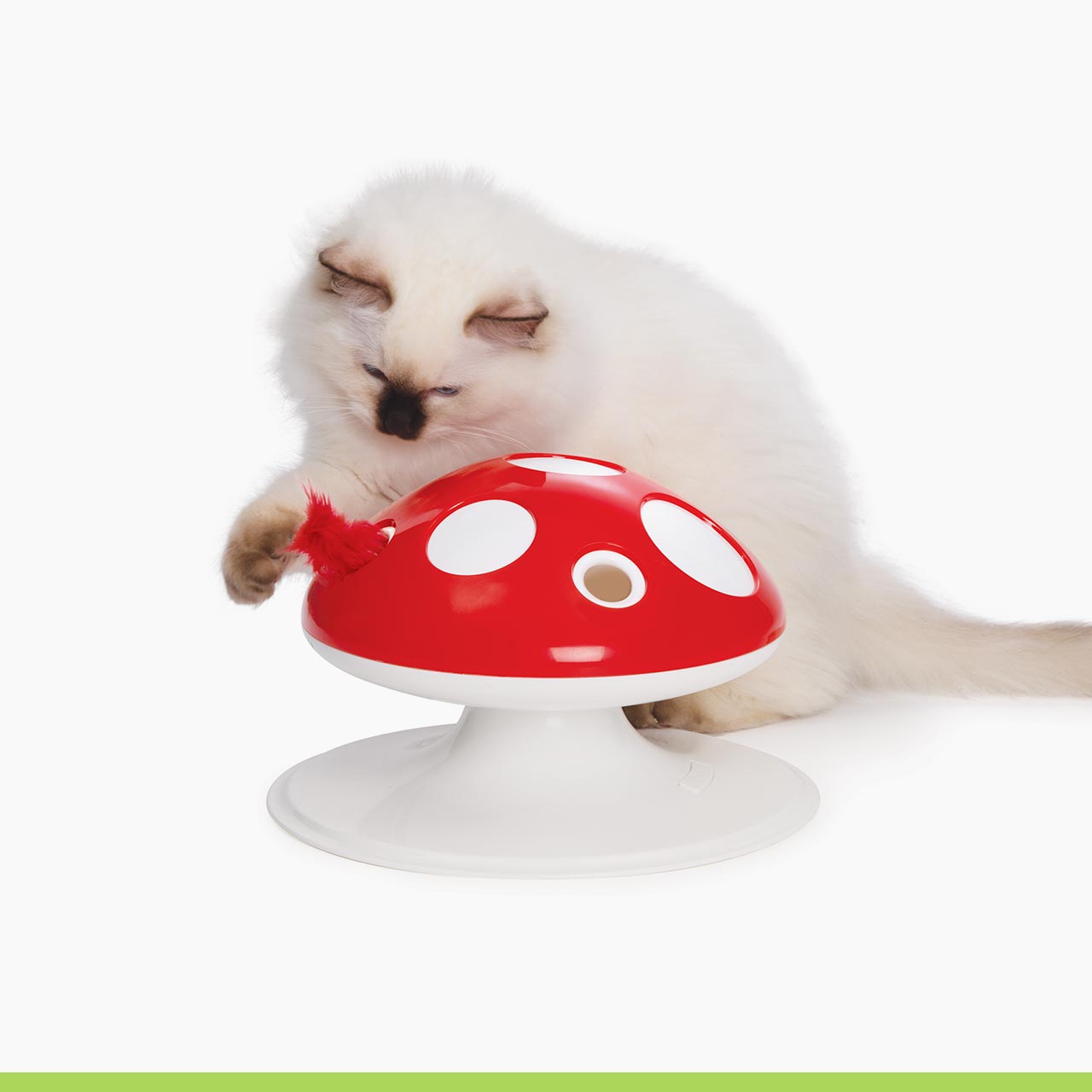In this article
The benefits of sharing your bed with your cat
Comfort and Stress Relief
Loads of cat owners love the companionship of their feline at night. After all, cats are much like teddy bears: silky soft and super cute to boot. Feeling your feline’s body heat and hearing them purr away can help relieve stress, reduce anxiety, and help fight depressed feelings.
In addition, your cat will probably be all too happy to be allowed on your soft and warm bed near their favorite person.

Falling asleep more quickly
Having a sleeping kitty next to you can help you fall asleep more quickly. Not only is a cat’s body warmth super soothing, but their purring also acts as white noise that can help you doze off in a matter of minutes.
If you have a more active kitty that wants to explore the bedroom for the first 45 minutes, this benefit might be down the drain.
Bonding
Allowing your cat to sleep on your bed can help strengthen the bond between the two of you. Insecure cats will enjoy the safety you provide them simply by being close. If you don’t like your cat to sleep on your bed, but want to allow them near, placing a cat tree in the bedroom is a brilliant idea.

Cat safety
If your cat has a tendency to roam the neighbourhood at night, allowing them to sleep on your bed can encourage them to stay put and sleep through the night. In addition, you won’t have to worry about where your cat is hanging out. You’ll just know that your tiny tiger is safe and sound with you.
The downsides of sharing your bed with your cat
Sleep Disruptions
Cats are crepuscular animals, meaning they are most active at dusk and dawn. As a result, your cat is likely to wake up much earlier than you do, especially in summer.
In addition, most cats don’t really sleep for 8 hours on end, so your feline friend might disrupt your sleep by moving around, meowing, purring near your ears, or even by grooming you with their sandpaper-like tongue.

Allergies
It goes without saying that when you are allergic to cats – even when only mildly – or when you suffer from asthma, you shouldn’t allow your feline to sleep on your bed.
In fact, in this case it would be better if you were to lock your cat out of the bedroom altogether to prevent allergens from ending up on your blankets. Allowing your cat to hog the sheets would only worsen your symptoms, making it harder for you to sleep.
Hygiene concerns
Unfortunately, cats might carry things in their fur that you don’t really want to end up on your bed, including dirt, litter box dust, bacteria, and potentially even fleas, ticks, and other nasties.
In addition, cats tend to shed, which will make it all the more difficult to keep your bedding clean and hygienic when you allow your feline to sleep with you.
Personal space
If you want to allow your feline to join you on the bed at night, be prepared to say goodbye to the idea of personal space. Depending on the size of your bed and your cat’s habits, allowing them to sleep on your bed may make it more difficult for you to move around comfortably.












